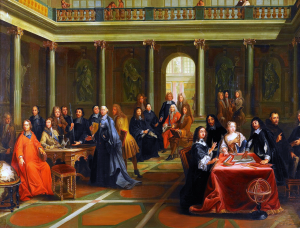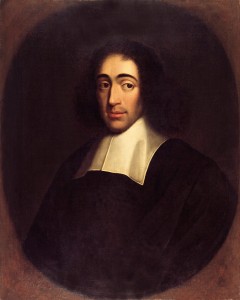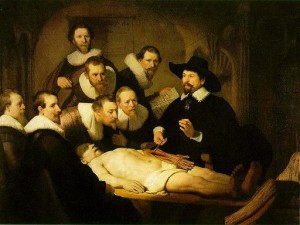Pagine
Condividi e segnala
Tag
- Althusser
- Antropologia
- Baumgarten
- Bourdieu
- Conceivability of Nothingness
- Conciliation
- corpo
- Derrida
- Dialectics
- Difference
- distinzione
- Europe
- Expression
- giudizio
- Grace
- Habitus
- Heidegger
- Hobbes
- Kant
- linguaggio
- Lyotard
- marxismo
- Medieval Aristotelianism
- Metaphysics
- Nature
- Negative
- Nichts
- nihil
- Nihilism
- nihil negativum
- nihil privativum
- Non-identical
- Nothing
- Nothingness
- onore
- politica
- postmoderno
- pratica
- riconoscimento
- Smith
- solitudine
- Sovranità
- Spinoza
- Thomas Aquinas
- Western Ontology
-
Articoli recenti
Link
Archivi categoria: Storia delle idee
Intervista sul materialismo
Pierre-François Moreau e francesco toto
FT: Quando si fa la storia delle idee i nomi sono importanti. La prima cosa che vorrei chiederti riguarda allora l’emergere della categoria di materialismo. Si tratta del nome di un’accusa o di una rivendicazione ? Chi accusa chi di essere materialista? E qual è il nemico implicitamente designato da coloro che per primi rivendicano per sé questa bandiera?
PFM: Sappiamo oramai che le prime occorrenze del termine « materialista» si situano nel XV e XVI secolo, ma in un’accezione molto differente da quella che ci è familiare. Il «materialista» … Continua a leggere
Pubblicato in Storia delle idee
Lascia un commento
Les voies du corps. Schuyl, Clerselier, et La Forge lecteurs de L’Homme de Descartes.
Delphine Kolesnik-Antoine
 Abstract: From a methodological reflection on the relevance of the categories of “tendency” and “inclination” for a study of the reception of a text, this contribution focuses on three texts that accompanied the first edition of L’Homme in his original language, in 1664: the translation of the preface by Schuyl to the 1662 Latin edition, the preface by Clerselier and the Remarques by La Forge. In order to connect these texts both to the indications given by Descartes himself in his published writings, and to the subsequent condemnation of his works, we can distinguish between … Continua a leggere
Abstract: From a methodological reflection on the relevance of the categories of “tendency” and “inclination” for a study of the reception of a text, this contribution focuses on three texts that accompanied the first edition of L’Homme in his original language, in 1664: the translation of the preface by Schuyl to the 1662 Latin edition, the preface by Clerselier and the Remarques by La Forge. In order to connect these texts both to the indications given by Descartes himself in his published writings, and to the subsequent condemnation of his works, we can distinguish between … Continua a leggere
Pubblicato in Storia delle idee
Lascia un commento
La conoscenza del bene e del male. Dal Breve Trattato all’Etica
Emanuela Scribano1.
 Malgrado l’evidente continuità problematica tra il Breve Trattato e l’Etica, nel passaggio dallo scritto giovanile all’opera maggiore non è solo la disposizione delle materie a subire modifiche, e i cambiamenti non sono solo aggiunte. Nell’Etica è dato rintracciare vere e proprie confutazioni delle tesi contenute nel Breve Trattato. Un buon esempio, in questa direzione, è quello della meraviglia. Nel Breve Trattato i sentimenti sono divisi a seconda del genere di conoscenza dal quale derivano, e la meraviglia figura al primo posto tra i sentimenti che derivano dall’opinione2… Continua a leggere
Malgrado l’evidente continuità problematica tra il Breve Trattato e l’Etica, nel passaggio dallo scritto giovanile all’opera maggiore non è solo la disposizione delle materie a subire modifiche, e i cambiamenti non sono solo aggiunte. Nell’Etica è dato rintracciare vere e proprie confutazioni delle tesi contenute nel Breve Trattato. Un buon esempio, in questa direzione, è quello della meraviglia. Nel Breve Trattato i sentimenti sono divisi a seconda del genere di conoscenza dal quale derivano, e la meraviglia figura al primo posto tra i sentimenti che derivano dall’opinione2… Continua a leggere
Pubblicato in Storia delle idee
Lascia un commento
L’attenzione di Kant per la corporeità: tra medicina e filosofia trascendentale
Chiara Fabbrizi
Abstract: The purpose of this contribution is to demonstrate that Kant has not neglected the problem of the embodiment of reason. In fact, in order to understand Transcendental Philosophy we should bear in mind that the subject of knowledge is a human being. By focusing on the physiological aspects of the interaction between mind and body, and on the Kantian notes on medicine, I will show their general relevance for Transcendental Philosophy. Even if Kant denies that Transcendental Philosophy depends on human biology, he certainly sees the necessary connection between them. In particular, although … Continua a leggere
Pubblicato in Storia delle idee
Lascia un commento


